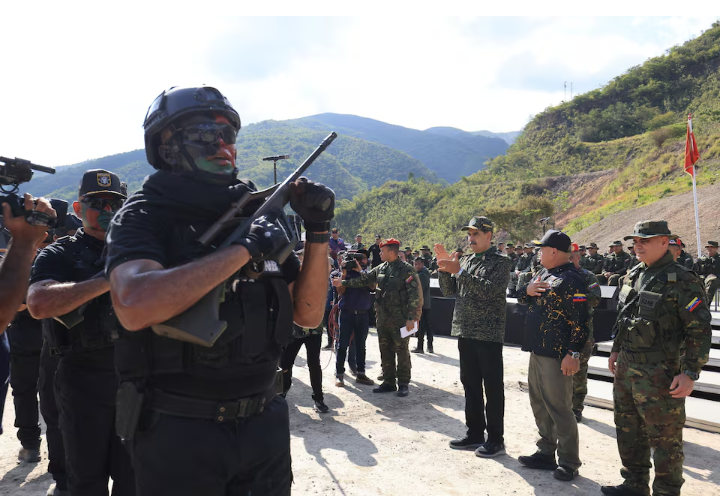Tensions between the United States and Venezuela have sharply increased following the arrival of a substantial U.S. naval force in the Southern Caribbean.
The deployment includes seven warships, a nuclear-powered fast attack submarine, and roughly 4,500 personnel, including 2,200 Marines. The U.S. government has framed the operation as a mission to combat Latin American drug cartels, such as Mexico’s Sinaloa Cartel and Venezuela’s Tren de Aragua.
Venezuelan President Nicolás Maduro responded by denouncing the U.S. actions as a violation of international treaties, accusing Washington of threatening Venezuela’s sovereignty.
In reaction, Maduro announced the mobilization of 15,000 troops along the western border to counter drug trafficking and ordered nationwide civil defense training for civilians.
Analysts note that the escalation reflects deeper, long-standing frictions between the two nations, rooted in mutual accusations of subversion, economic sanctions, and geopolitical rivalry.
Regional responses have been mixed; while some neighboring governments have expressed support for U.S. anti-narcotics efforts, others have criticized the military buildup as provocative.
The U.S. military has emphasized that its presence aims solely to disrupt organized crime and drug trafficking networks, but Venezuelan authorities view it as a potential precursor to broader intervention. Security experts warn that the standoff could increase the risk of miscalculations, especially with large naval assets operating near contested maritime areas.
As both nations maintain heightened military readiness, diplomatic channels remain limited, and regional observers are closely monitoring the situation for signs of escalation or de-escalation in the Caribbean.


Comments are closed.